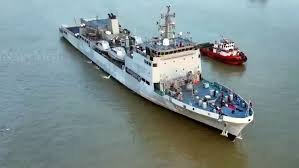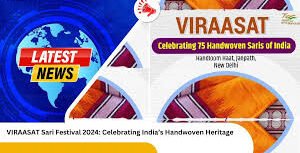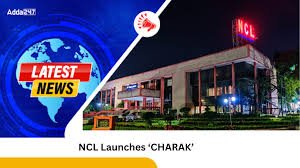Country’s First Cartography Museum Inaugurated in Mussoorie
In a significant stride towards preserving and promoting the rich cartographic heritage of India, the country’s first Cartography Museum was recently inaugurated in the picturesque town of Mussoorie. This pioneering initiative is set to play a pivotal role in various government exams, including those for positions such as teachers, police officers, banking professionals, railways personnel, and even aspirants for civil service positions like PSCS to IAS.

Why this News is Important:
Preservation of Historical Cartographic Heritage: One of the primary reasons why this news holds paramount importance is the preservation of India’s historical cartographic heritage. Cartography, the art and science of map-making, plays a crucial role in understanding the evolution of geographical knowledge, and this museum stands as a testament to that heritage.
Educational Significance: For students preparing for government exams, this development is a boon. The Cartography Museum will serve as a valuable resource for learning about the history of map-making, geographical exploration, and the evolution of cartographic tools. Such knowledge is often tested in various competitive examinations.
Historical Context:
The inauguration of the Cartography Museum in Mussoorie is a momentous occasion, but it’s essential to acknowledge the historical context that led to its establishment. India has a rich tradition of map-making, dating back centuries. The British colonial period saw significant advancements in cartography, with detailed maps of the Indian subcontinent being produced.
After gaining independence, India continued to emphasize the importance of geographical knowledge. The Survey of India, founded in 1767 during the British era, played a pivotal role in this regard. Over the years, cartography evolved with technological advancements, making it even more critical in modern governance and administration.
Key Takeaways from this News:
| Serial Number | Key Takeaway |
|---|---|
| 1 | The inauguration of India’s first Cartography Museum in Mussoorie is a significant milestone in preserving the country’s rich cartographic heritage. |
| 2 | Students preparing for government exams can benefit from the educational resources and historical insights offered by the museum, as questions related to cartography may appear in various competitive tests. |
| 3 | The historical context of map-making in India, from colonial times to the present day, sheds light on the evolving role of cartography in governance and administration. |
| 4 | Cartography continues to be relevant in modern times, with applications ranging from urban planning and disaster management to navigation and defense. |
| 5 | The establishment of the Cartography Museum aligns with India’s efforts to showcase its historical and cultural heritage, making it an essential destination for both education and tourism. |
Important FAQs for Students from this News
Q: What is the significance of the Cartography Museum in Mussoorie for government exam aspirants?
A: The Cartography Museum in Mussoorie is significant for government exam aspirants as it serves as an educational resource for understanding the history of map-making, which is often tested in various competitive exams. It also showcases the evolution of cartographic tools and their modern applications.
Q: Are there any specific exams where questions related to cartography might appear?
A: Yes, questions related to cartography may appear in exams for positions such as teachers, police officers, banking professionals, railways personnel, and civil service positions like PSCS to IAS. These questions test candidates’ knowledge of geographical concepts and map interpretation.
Q: Can the Cartography Museum be visited for educational purposes?
A: Yes, the Cartography Museum is open to the public and can be visited for educational purposes. It offers valuable insights into the history of map-making and geographical exploration.
Q: What is the historical context of cartography in India?
A: The historical context of cartography in India includes its evolution during the British colonial period, with detailed maps produced for administrative purposes. Post-independence, organizations like the Survey of India continued to emphasize cartography’s importance.
Q: How can knowledge of cartography be relevant in modern times?
A: Cartography remains relevant in modern times for various applications, including urban planning, disaster management, navigation, and defense. It helps in understanding and managing geographical data efficiently.
Some Important Current Affairs Links

















